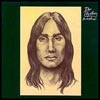Tuesday, January 31, 2006
Walking across the aisle
I'm on the verge of changing political affiliations, and it's all Al Franken's fault. I just need to reconcile/rationalize a few things. Stay tuned.
Wednesday, January 18, 2006
Homage to Fogelburg: Home Free 1972

Home Free (1972)
To The Morning
Stars
More Than Ever
Be On Your Way
Hickory Grove
Long Way Home (Live In the Country)
Looking For A Lady
Anyway I Love You
Wysteria
The River
Dan Fogelberg - acoustic and electric guitars, piano, organ, Moog, vocals
Norbert Putnam - bass, cello
Kenny (Buffalo) Buttrey - drums, percussion, red & green
Weldon Myrick - pedal steel, dobro
Buddy Spicher - fiddle, viola
Farrell Morris - vibes, percussion
David Briggs - played piano on "More Than Ever" and "Anyway I Love You" and organ on "Long Way Home"
Glenn Spreen - String arrangements on "To The Morning" and "Wysteria"
Bill Purcell - String arrangements on "Hickory Grove"
After dropping out of the University of Illinois to pursue a career as a singer/songwriter, Fogelberg followed Irving Azoff to Los Angeles. Azoff shops a demo around to several labels, and Fogelberg eventually signs with John Hammond at Columbia Records. Hammond is building a stable of singer/songwriters that will include Bruce Springsteen and Billy Joel.
Fogelberg goes to Nashville to record with Norbert Putnam. While working on his album, he works as a session guitarist and singer and the experience makes a profound influence on not only his musicianship, but his songwriting as well.
This record transcends anything that was being recorded in Nashville in 1972. The big hits coming out of Music City that year were “Baby Don’t Get Hooked on Me” by Mac Davis, and probably “Happiest Girl in the Whole USA” by Donna Fargo.
“Home Free” opens with a lush, string-filled arrangement that leads into the sparse “To the Morning”, a piano-based song with a string arrangement that shores up the refrain.
This album was not going to be a typical Nashville-made record. But it was also ahead of the curve of anything coming out of LA, as well.
“Stars” follows “To the Morning”, continuing with the sparse arrangement style. Vocally, Fogelburg’s in the higher registers here, again, much different than what is being recorded next door. This may be a result of Fogelburg being a better vocalist than your typical Mac Davis type. Both songs are thematically introspective, which is in line with the singer-songwriter style of the day. “Stars” is more guitar-based, a basic acoustic style.
The next song heads straight to the edge of country. “More Than Ever” again features Fogelburg’s strong tenor, and his soon-to-be trademark harmonies are present as well. Lots of steel guitar, piano, and guitar on this song.
We head back to “singer-songwriter land” with “By on Your Way”, piano and synth shoring up this ‘break-up’ song. No trucks, dogs or trains here, though.
“Long Way Home (Live in the Country)” goes Nashville from a music standpoint, however lyrically, we have themes of the evil city and the idyllic country. Lots of fiddles and basic bluegrass instrumentation.
The mournful “Looking for a Lady” with its basic acoustic guitar and understated harmonies jumps us back to singer-songwriter land. We seem to be going from ditch to ditch with no middle ground. There are all good songs, but thematically, I’m not sure what was being accomplished.
No sooner do we go from small (guitar, vocals) then we go to large (fiddle and steel guitars) with “Anyway I Love You”, a cute little jaunt back down the country lane. Fogelburg is up to this vocally and lyrically. And now that you are in that sweet country groove, we go back to…
“Wysteria”, a brooding study of a psycho-chick. Well, that’s a bit heavy-handed, but it features classical guitar, strings (not fiddles) and keyboards with a haunting melody featuring the full range of Fogelburg’s voice.
The leads us to the last cut, and it seems that we have one of these songs in every Fogelberg album…the extended story-song that features movements and solos and all that neat stuff that every extremely talented singer-songwriter must have on at least one song on the album. “The River” has dark lyrics and musical theme that is well served by Fogelburg’s vocals. No fiddles here, just piano, guitar, bass, and perhaps some strings hinting in the background.
This is a nice song, heck, they are all nice songs, but you kind of get the impression that Norbert Putnam wasn’t sure which direction he wanted to go with Fogelburg. This is no knock on Putnam, I think Fogelburg was showing such prowess from both sides of the fence that it was difficult to find one theme to go with on this record. Also, “thematic” albums weren’t being produced out of Nashville in the early ‘70’s. Perhaps my expectation of wanting all the songs to be thematically linked is a bit of a stretch.
To appreciate Fogelburg’s growth as a songwriter and musician, I really think you need to listen to “Home Free”. While it might not be a balanced record, it showcases the tremendous potential that Fogelburg in his early 20’s. His strong vocals and technique were just emerging, and his talent for writing, singing, and playing were far beyond anything the industry had seen.
After the album was completed, Fogelburg went back west. I’ve read that John Hammond was not happy with the “country-ness” of the album, which led to Joe Walsh producing the next Fogelburg album, which I’ll get around to appreciating soon.
Subscribe to:
Posts (Atom)